Plant reproduction -> cytoplasm
Cytoplasm
The cytoplasm is a jelly-like substance that fills the interior of a cell. It is made up of water, salts, and organic molecules such as proteins, lipids, and carbohydrates. The cytoplasm plays a key role in supporting the internal structures of the cell and facilitating various cellular processes.
Composition of Cytoplasm
The cytoplasm is composed of:
- Cytosol: The liquid component of the cytoplasm, mainly consisting of water and dissolved molecules.
- Organelles: Structures within the cytoplasm, such as the endoplasmic reticulum, Golgi apparatus, mitochondria, and various vesicles.
- Cytoskeleton: A network of protein filaments that provides structural support and helps in the movement of organelles within the cell.
Functions of Cytoplasm
The cytoplasm serves several important functions within the cell:
- Support and structure: It maintains the shape of the cell and supports the organelles.
- Cellular metabolism: Many metabolic reactions take place within the cytoplasm, including protein synthesis and various enzymatic reactions.
- Intracellular transport: It facilitates the movement of organelles and molecules within the cell through the cytoskeleton and cytoplasmic streaming.
- Storage: It serves as a storage site for various nutrients, ions, and waste products.
Study Guide
To understand the concept of cytoplasm, it's important to focus on the following key points:
- Describe the composition of cytoplasm, including its major components.
- Explain the functions of cytoplasm in supporting cellular activities and maintaining cell structure.
- Discuss the role of cytoplasm in intracellular transport and cellular metabolism.
- Compare and contrast the cytoplasm of different types of cells, such as animal cells and plant cells.
Understanding the cytoplasm is essential for grasping the fundamental processes that occur within a cell and its significance in maintaining cellular homeostasis.
.◂Science Worksheets and Study Guides Sixth Grade. Plant reproduction
Study Guide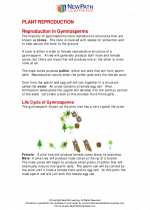 Plant reproduction
Plant reproduction  Activity Lesson
Activity Lesson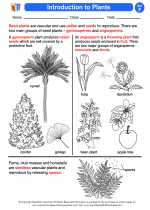 Introduction to Plants
Introduction to Plants  Worksheet/Answer key
Worksheet/Answer key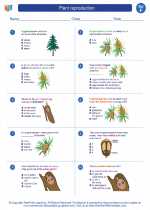 Plant reproduction
Plant reproduction  Worksheet/Answer key
Worksheet/Answer key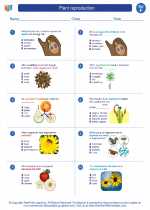 Plant reproduction
Plant reproduction  Worksheet/Answer key
Worksheet/Answer key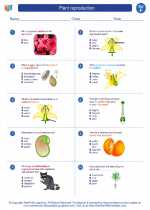 Plant reproduction
Plant reproduction  Vocabulary/Answer key
Vocabulary/Answer key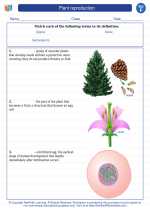 Plant reproduction
Plant reproduction 

 Activity Lesson
Activity Lesson
 Worksheet/Answer key
Worksheet/Answer key
 Worksheet/Answer key
Worksheet/Answer key
 Worksheet/Answer key
Worksheet/Answer key
 Vocabulary/Answer key
Vocabulary/Answer key

The resources above cover the following skills:
LIFE SCIENCE
From Molecules to Organisms: Structures and Processes
Students who demonstrate understanding can:
Use argument based on empirical evidence and scientific reasoning to support an explanation for how characteristic animal behaviors and specialized plant structures affect the probability of successful reproduction of animals and plants respectively.